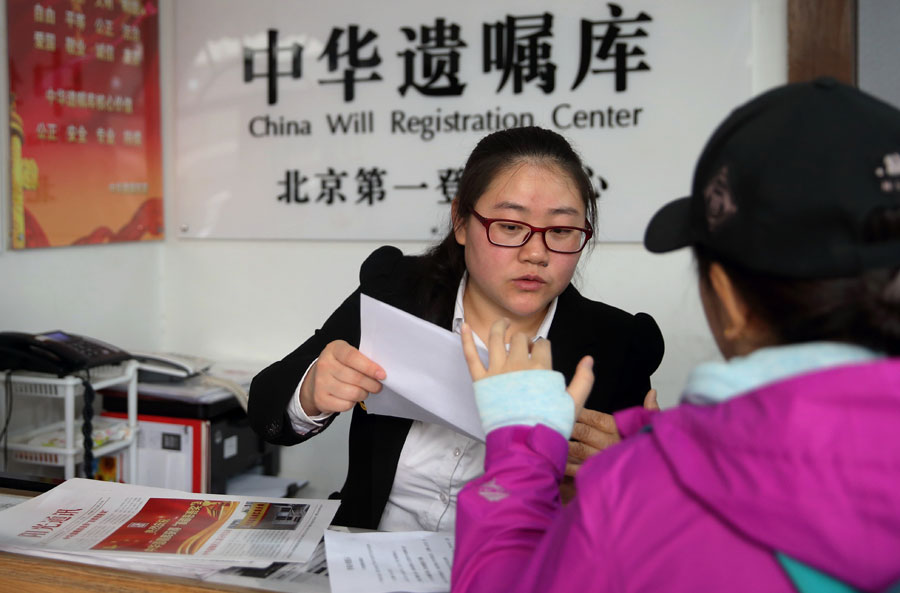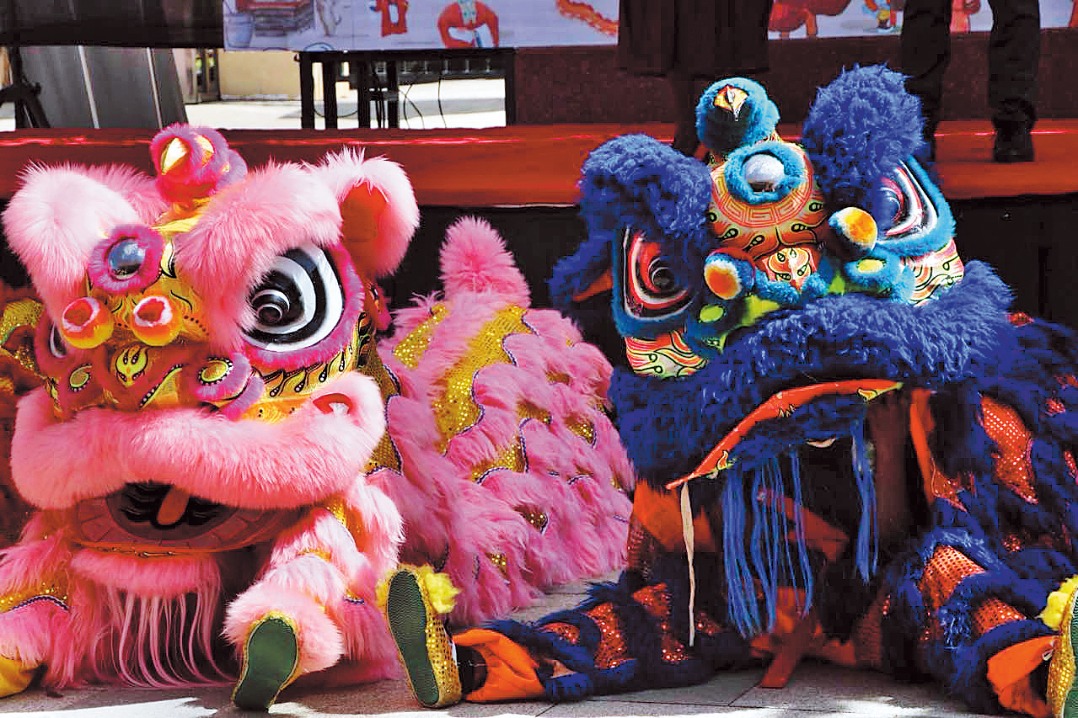Chinese NGO helps elderly find a way to a will

Shifting trend

As Chinese become richer and the number of inheritance disputes rises, experts say people are becoming increasingly aware of the significance of legally binding wills.
Yuan Xin, a professor at Nankai University who studies aging and development, said China has seen an economic boom in the past few decades and people now have much more disposable income.
"Surveys show more than 85 percent of the country's elderly own real estate, which is a huge amount of wealth, especially in first-tier cities like Beijing," he said.
The increased wealth, along with a soaring divorce rate, had led the educated elderly to seek legally binding protection of their legacies, he said.
Chen echoed Yuan's comments. "I have seen a decline in cases involving children failing to support their aging parents in recent years," he said. "But cases involving inheritance disputes have risen."
A report based on 80,000 wills registered at the center shows the percentage of will-makers aged between 60 and 70 has increased steadily in the past five years, from less than 30 percent in 2013 to 43 percent in 2017, whereas the percentage of those older than 70 has declined.
Real estate appeared in more than 99 percent of wills, making it the most common type of inheritance, the report said. Bank savings followed, but only appeared in 17 percent.
Almost all the wills specified that the inheritance was intended for their children and was not the joint property of their children's marriage, meaning their children's spouses would get nothing in the event of a divorce.
The UN predicts the number of Chinese over the age of 60 will double by 2050, reaching 480 million, while those over 80 will triple, reaching 110 million. That scenario means 25 percent of the world's elderly population will be living in China by then.
























